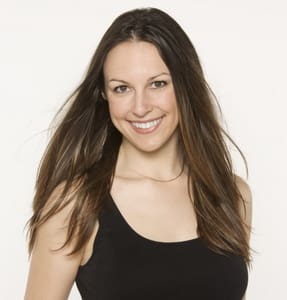- Skip to primary navigation
- Skip to secondary navigation
- Skip to main content
- Skip to primary sidebar
It’s Hard To Be A Boy- Cassie Greer Blogs Boy-Style
 I went through a phase of several years in college where I was just dying to play a boy on stage.
I went through a phase of several years in college where I was just dying to play a boy on stage.
Theatre – which, may I point out, is a historically male-dominated art form – seemed to me to present so many more opportunities for men: much more interesting and complex characters, more truly iconic roles, more opportunities to do cool things like swordfights, not to mention the majority of characters in most plays seemed to be written for men, and theatre departments always seem to be over-saturated with girls. I would drop not-so-subtle hints to my professors and directors about how interesting I thought it would be to play a male character; I noted that I had a lower voice than some of my late-adolescent colleagues, and that I could be “very masculine” sometimes (read: I’m good with power tools and I like sports). All the prodding and hinting came to almost nothing (I *did* get to play an androgynous minor character in a production of Much Ado About Nothing my senior year), and I entered my professional career having accepted that I was a woman, and would therefore spend my life portraying female characters. And aside from playing Othello in a scene for a grad school acting class, that’s pretty much been the case.
Until I started working with Bag&Baggage.
I don’t know if this is apparent to most theatre-going audiences, but Bag&Baggage as a company – staff, board, actors, designers, crew positions, etc. – is about 90% run by women. This is huge. In a field that has been operated and led by men for so long, we’re making a tiny little equality dent here in Northwest Oregon. And while Bag&Baggage has never been a stranger to non-traditional casting, our work on stage has recently begun to reflect our femalecentric nature with much more specificity: we tackled Julius Caesar with an all-female cast in the summer of 2013, and now, we’re attempting an adaptation of Two Gentlemen of Verona not just with all women, but with only five of us. The roles and iconic characters and challenges I was looking for in college have found me!
So, what’s it like to finally play a boy?
…it’s really hard.
 Not only are we, as actors, 15 or so years removed from the adolescence of the characters we’re playing – having serious implications on emotional maturity, focus, and priorities – we’re also trying to navigate the physical reality of gendered bodies that are foreign to us, and cultivate spatial awarenesses, gestural lives, and interpersonal connections that are true to these bodies. And, you know, say the lines and do the blocking all at the same time.
Not only are we, as actors, 15 or so years removed from the adolescence of the characters we’re playing – having serious implications on emotional maturity, focus, and priorities – we’re also trying to navigate the physical reality of gendered bodies that are foreign to us, and cultivate spatial awarenesses, gestural lives, and interpersonal connections that are true to these bodies. And, you know, say the lines and do the blocking all at the same time.
We’ve given physicality a lot of attention, and we’ve worked to heighten, lift, and stretch our choices to create physical shapes, poses, and stances that are instantly communicative; we’ve practiced and honed the ways we take up space, move through the world, and impose on (or defer to) others. Being women playing men really lends itself to this kind of visceral, visual storytelling, and while it’s challenging work, it’s also tons of fun!
Then there’s the challenge of text and authenticity. And let me tell you, it’s just as hard to think like a fifteen-year-old boy as it is to move like one…
As a cast, we’ve adopted the idea that intense emotional commitment to each moment is the only way that we (as late-twenty- and early-thirty-somethings) can bring authenticity to this story of adolescent love and betrayal. The highs are ridiculously high, the lows are completely devastating, and almost everything is taken personally.
The whole concept of teenaged desire presents a wealth of motives to drive the actions of our characters: we want to be popular, we want to be special, we want to explore our sexualities and our sexual power, we want friendship, we want reassurance, we want revenge, we want love, we want, we want, we want.
And all this “want” gets colored by the patriarchal culture of the Shakespearean world, as Julia’s desire for Proteus looks very different than Proteus’ desire for Silvia; Lucetta’s way of loving and caring for Julia stands in stark contrast to the Duke’s way of caring for Silvia, and to Antonio’s care for Proteus. Gender necessarily affects the choices these characters make, not to mention the manner in which they carry these choices out.
 With all this in mind, we’ve returned again and again to demanding honesty and truth from ourselves in a painstakingly deliberate way; we’ve honed our objectives to align with our characters’ ages, sexes, temperaments, and desires; and we’ve invested in our relationships on stage in a manner that celebrates the youth, naivete, and lively emotional realities of young love.
With all this in mind, we’ve returned again and again to demanding honesty and truth from ourselves in a painstakingly deliberate way; we’ve honed our objectives to align with our characters’ ages, sexes, temperaments, and desires; and we’ve invested in our relationships on stage in a manner that celebrates the youth, naivete, and lively emotional realities of young love.
So where does this leave us?
We head into tech this weekend, where we take the physical and emotional work we’ve been developing for the past several weeks and throw in lights, a mountain of cardboard boxes, wigs, bellbottoms, a disco ball, a bunch of 70’s love songs (performed live!), a dog, a swordfight, and probably a bunch of other stuff that I’m forgetting about. And we hope to god that it all works.
This is the magic of theatre, where authenticity of performance meets thoughtful technical realization, and suddenly you’re in an exciting, unique new world, telling an old story as if it’s the very first time. And this time, I get to dive into this world as a boy.
Come see how it all turns out, won’t you?
Cassie Greer
Resident Acting Company
Proteus, The Six Gentlepersons of Verona

Reader Interactions